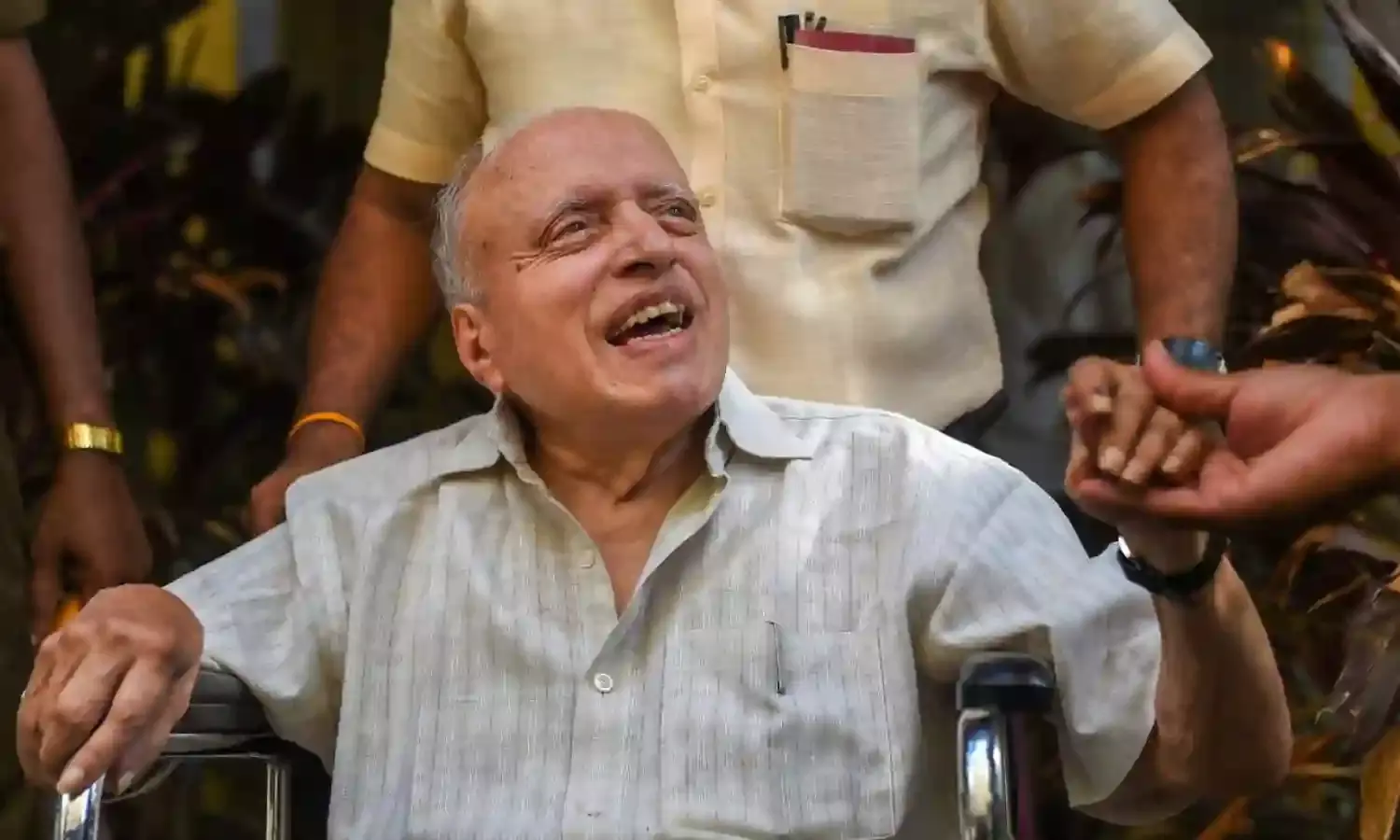Anti-Modi Discontent Cuts Across Political Parties as Tamil Nadu Votes Today
#TCVotesThe vacuum Karunanidhi and Jayalalithaa left has set things in motion

CHENNAI: Just over six crore voters in Tamil Nadu and Puducherry will cast their votes today, to elect representatives to 39+1 seats in Parliament. Bye-polls for 18 Assembly seats in Tamil Nadu will also be held today.
The whirlwind of election campaigns ended on Tuesday, and the election in Vellore (Lok Sabha) stands cancelled by the Election Commission on grounds of malpractice, violation of the code of conduct, and unlawful activities by the governing AIADMK.
Keenly watched by pundits and politicians alike, this election is regarded as a game changer in the Tamil Nadu political landscape for several reasons.
The state has been witnessing a political vacuum and transition ever since the demise of the iconic Dravidian party leaders M.Karunanidhi of Dravida Munnetra Kalagham and J.Jayalalithaa of the All India Anna Dravida Munnetra Kalagham, who dominated the political landscape of the state for several decades.
This election is a litmus test for both parties to prove their political strength under a changed leadership.
There has been a rise here in multiple political narratives or alternative politics, with multiple players, resulting in competitive politics or multi-corned contests unlike ever before.
And it is an election in which parties with a wider base like the Congress and BJP have claimed more stakes in terms of seat sharing and setting the agenda, and have gained unprecedented importance in questions of alliance.
In these circumstances, the DMK and AIADMK have each forged a major alliance with the various politically significant and minor parties of the state.
The DMK, based on its ideology of social justice, secularism and federalism has allied with the Congress, the Left parties, the Marumalarchi DMK, and with parties based on caste and religious minority interests.
Considering anti-incumbency and its own factional rift, the AIADMK has managed to form a rainbow coalition comprising the BJP, the PMK or Pattali Makkal Katchi of S.Ramadoss, and the Desiya Murpokku Dravida Kazhagam or DMDK of the actor Vijayakanth, besides a motley of smaller parties representing caste, regional and community interests.
In this critical situation both sides are trying to woo voters however they may. There are new media and memes galore from both sides to disseminate their political messages to society’s various strata.
While the poll verdict is unpredictable given the use of money and a prevalent freebie political culture, anti-Modi and anti-incumbency sentiments are palpable here. The AIADMK led state government has been in power for eight years. Together with Modi’s five-year rule this has thrown up anti-incumbency in the state.
Central policy under the Modi regime has undermined the interests of Tamil Nadu fuelling a spike in mass protests. There was the non-implementation of the Supreme Court verdict on forming a Cauvery Water Management Authority for sharing the waters of the Cauvery river. The forced imposition of the NEET exam despite its flawed or discriminatory nature. The Centre’s stand on jallikattu (bull-wrangling) and so on.
The anti-Modi sentiment is all pervasive, cutting across economic strata and different regions. PM Modi did not visit the state when cyclones hit, like Ockhi in December 2017 and Gaja last November, which devastated lives and livelihoods of fishermen from Kanyakumari and huge numbers of people in the Cauvery Delta districts.
The implementation of projects sponsored by the centre such as hydrocarbon extraction in Pudukkottai, or the neutrino observatory in Theni, led to mass agitations and anger against the state and central governments. In the wake of the agrarian crisis, the agrarian class of Tamil Nadu despite their long protest in Delhi did not get a hearing from PM Modi much less a policy response.
And there is strong discontent against the centre across the industrial classes for the blanket imposition of demonetisation and GST which put them through great hardship.
The AIADMK government is reeling meanwhile under a crisis of corruption scandals involving its ministers, the recent sex scandal in Pollachi, controversy surrounding an eight-lane expressway between Salem and Chennai, the state terror which killed 13 people protesting a Sterlite plant, the inadequate and delayed response to the cyclones Ockhi and Gaja, and so on.
On account of persistent infighting within the party after the death of Jayalalithaa, the state administration came to a standstill and remains dormant, in a persistent failure of state machinery.
The AIADMK’s pro-poor image built up by its predecessors has been shattered, gradually, by unscrupulous public policies leading to the disenchantment of its voter base.
Further, the Amma Makkakl Muneetra Kazhagam or AMMK, the splinter group headed by T.T.V.Dhinakaran – nephew of V.K.Sasikala, the party president who was close to Jayalalithaa – will cut into the electoral fortunes of the AIADMK.
Dhinakaran has already proved to be a threat by winning as an independent from Jayalalithaa’s R.K.Nagar seat in December 2017.
New political entrants like the actor Kamal Haasan’s Makkal Needhi Maiam or MNM and the Tamil ultra-nationalist Naam Tamilar Katchi or NTK are contesting from all the parliamentary constituencies in the state. Both parties will be seeking the widest possible political legitimacy in this election.
On the whole, the AIADMK has been able to manage an arithmetic alliance to take on the DMK’s, and there are now multiple political players in the state. But the DMK led alliance has an edge in the light of anti-incumbent feeling towards the governments at centre and state.
The declaration of results on May 23 will determine the political legitimacy of both the major Dravidian parties, and the fate of Tamil Nadu’s politics for some time to come.
(Cover photograph : MS Swaminathan, 93-year-old agriculture scientist, voted in Chennai earlier today)



